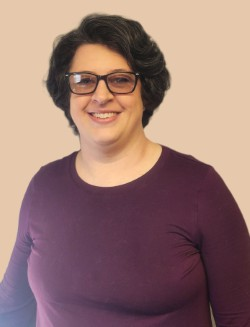About
Accepting referrals now, Bar None Haven provides locked level-6 residential Mental Health Services to male and female adolescents, ages 11 through 17, who meet the severe emotional disturbance criteria and have been assessed to require a locked setting for an additional level of safety. Haven’s treatment foundation is rooted in the Attachment, Regulation, and Competency (ARC) theoretical framework, and integrated with Dialectical Behavioral Therapy (DBT). It is expected that a majority of youth in Haven’s programming will have a history of prior mental health interventions with ongoing concerns related to safety, trust, self-esteem, and identity. Some may be victims of sexual, physical, and/or emotional abuse, and demonstrate self-destructive patterns of coping.
Eligibility
A Secure Environment in Which to Heal
Specialized Treatment to Meet Child and Family Needs
Helping adolescents and their caregivers find a path forward
Everyone needs help sometimes and seeking help is a sign of resiliency and strength. Caregivers may contact Bar None Haven after their child has experienced severe emotional and/or behavioral disturbances resulting in serious safety concerns. Haven is the only locked residential facility of its kind in the State of Minnesota and offers adolescents and their caregivers a chance to heal and work toward living a healthier life.
Bar None staff are experts at building therapeutic relationships and helping youth break through unhelpful patterns which have become harmful to their overall well-being.
At Bar None, we recognize that every person is unique, and we never use a one-size-fits-all approach. Haven’s programming is designed to work with each person as an individual to determine treatment goals and interventions, and to support the youth and their caregivers in finding effective pathways to success.
Services we provide:
- Individual Therapy
- Family Therapy
- Group Therapy
- Mental Health Groups
- Residential Case Management
- Psychiatry and Medication Management
- On-site Education
- Therapeutic Recreation
- Community Outings and Activities
- Family Support Services
- Aftercare Options
Typical diagnoses treated within Haven include, and may not be limited to:
- Major Depression
- Bi-Polar Disorder
- Post-Traumatic Stress Disorder (PTSD)
- Personality Disorders
- Attention-Deficit/Hyperactive Disorder (ADHD)
- Anxiety Disorders
- Reactive Attachment Disorder
“Dear Bar None Haven team:, Thank you so much for helping me. You guys never gave up. I’ve learned a lot here and have made such amazing progress. Just thank you. You guys helped me find a reason in my life. I will never forget any of you.”
-A former resident
Bar None Campus Leadership Team
Bar None Haven Team
Commonly Asked Questions
Haven serves adolescents who experience persistent life threatening and high-risk behaviors that present with issues such as: mood disorders, anxiety disorders, history of trauma, attachment issues, eating disorders, thought disorders, suicide attempts, and high self-harming behaviors.
Costs vary based on length of stay, the payer, and service contract. Services are reimbursable under most major health insurance plans. Funding for placements may also be available through county social services. Bar None Haven is Medical Assistance (MA) and Title IV-E eligible.
An individual’s length of stay is dependent upon several factors, including and not limited to the participant’s history, diagnosis, and motivation. The average length of stay is estimated to be 5-7 months.
Bar None Haven is located approximately 30 miles of the twin cities. The treatment space consists of 12 single-bed rooms and features a spacious shared living area, a gymnasium, a sensory room, a classroom, a game room, and a fenced in outdoor area for safe outdoor recreation. Haven is a certified mental health treatment program and is also certified as a locked facility to provide for the safety of residents.
Caregiver participation is an essential part of successful treatment and a critical factor in a child’s success after they residential treatment. Caregivers are expected to take an active role in the treatment process including family therapy and therapeutic passes and visits. Caregivers/families are encouraged to visit at least once weekly and maintain regular telephone contact with the youth in programming.
Forms
















